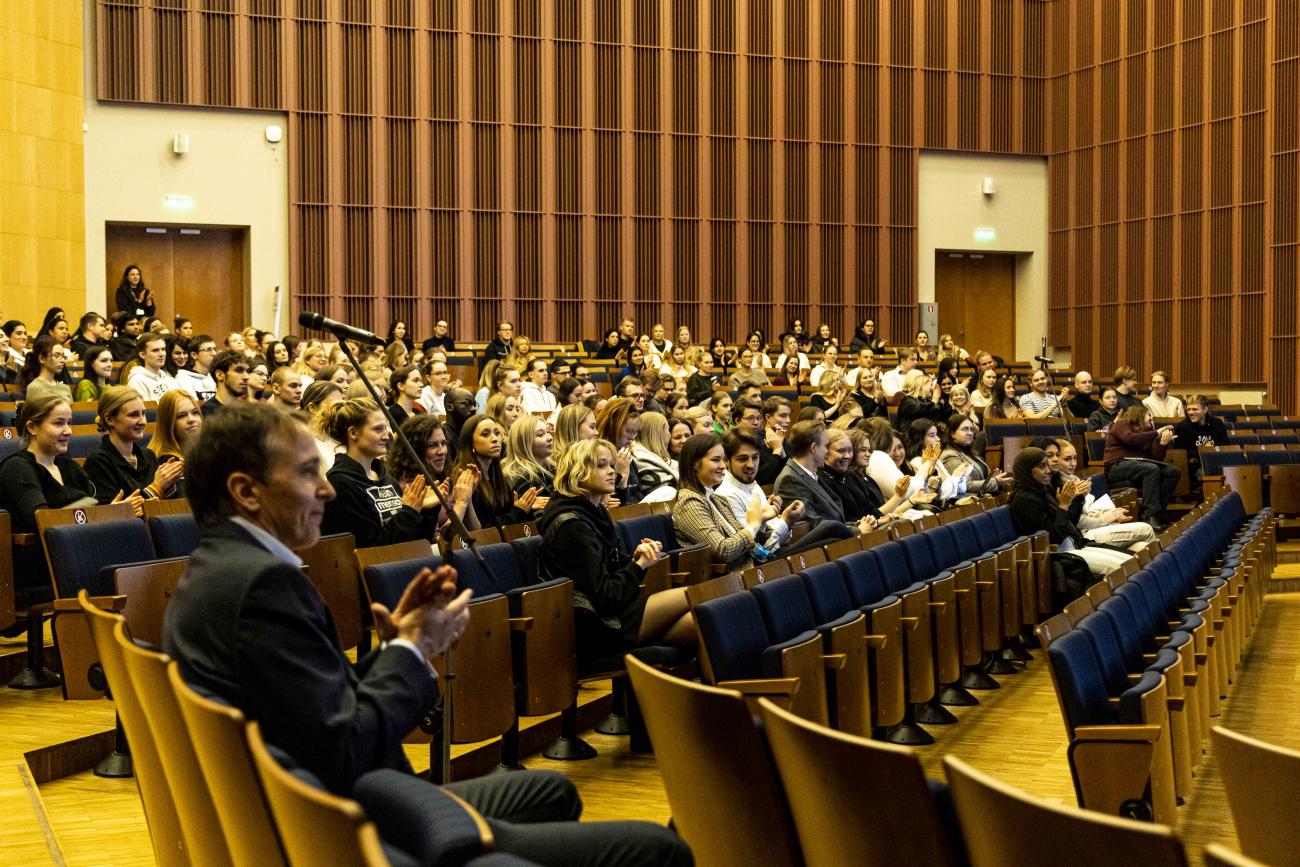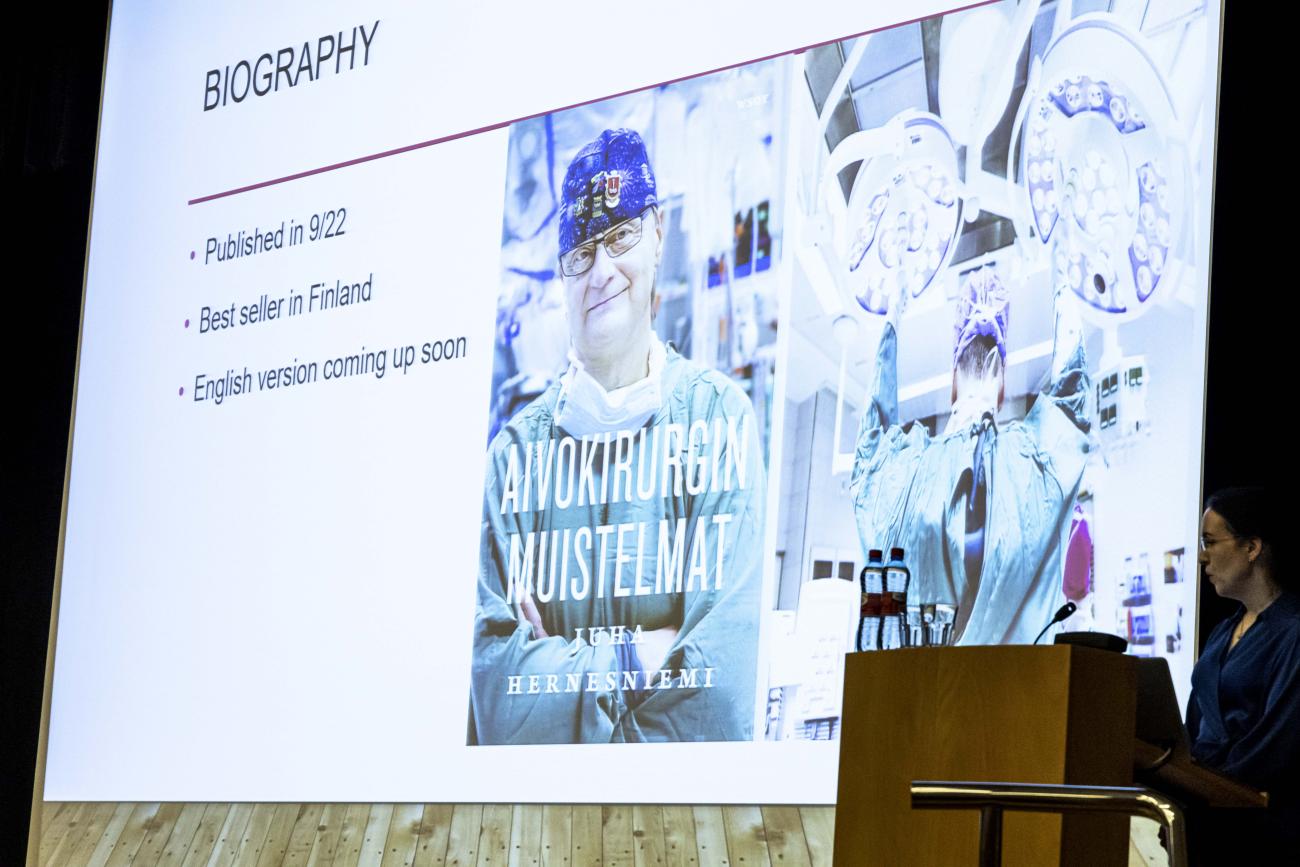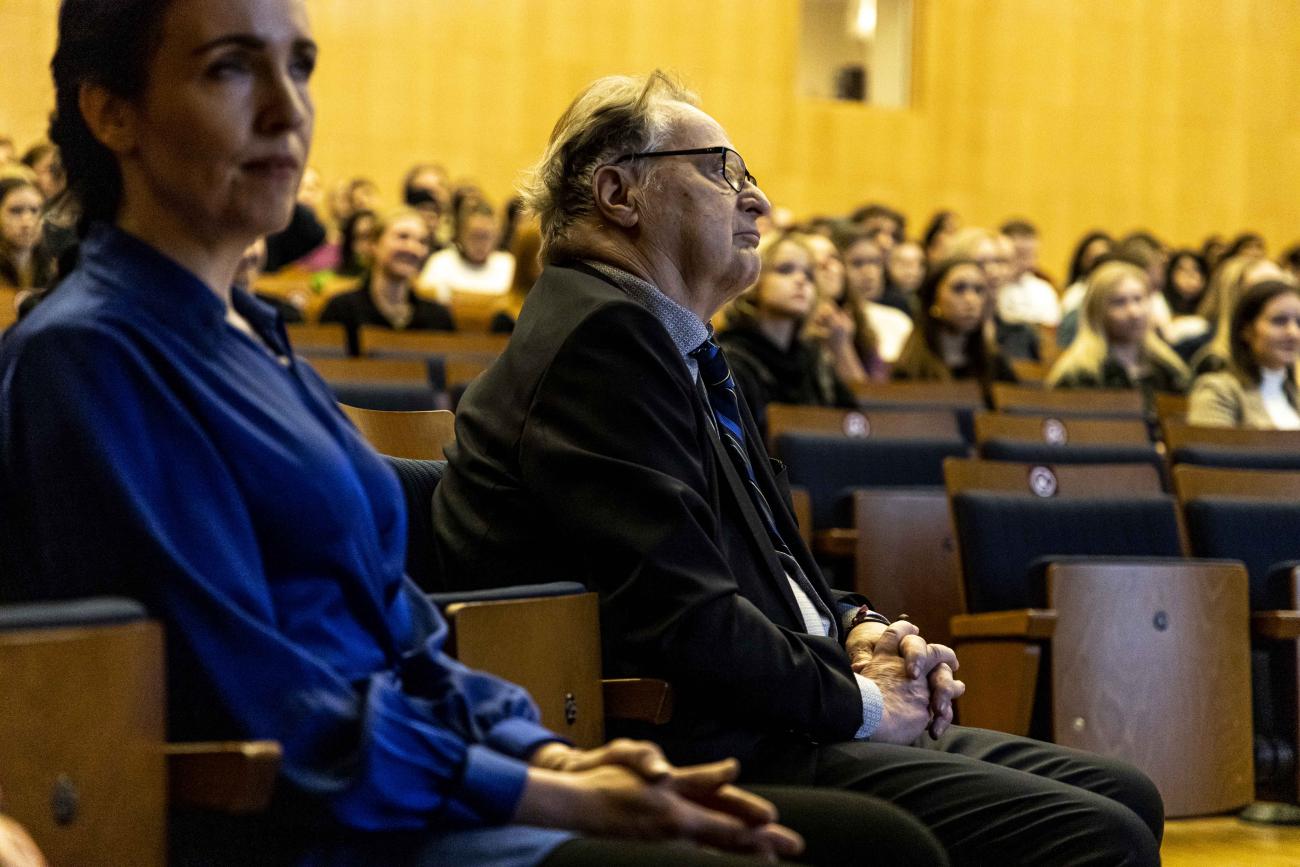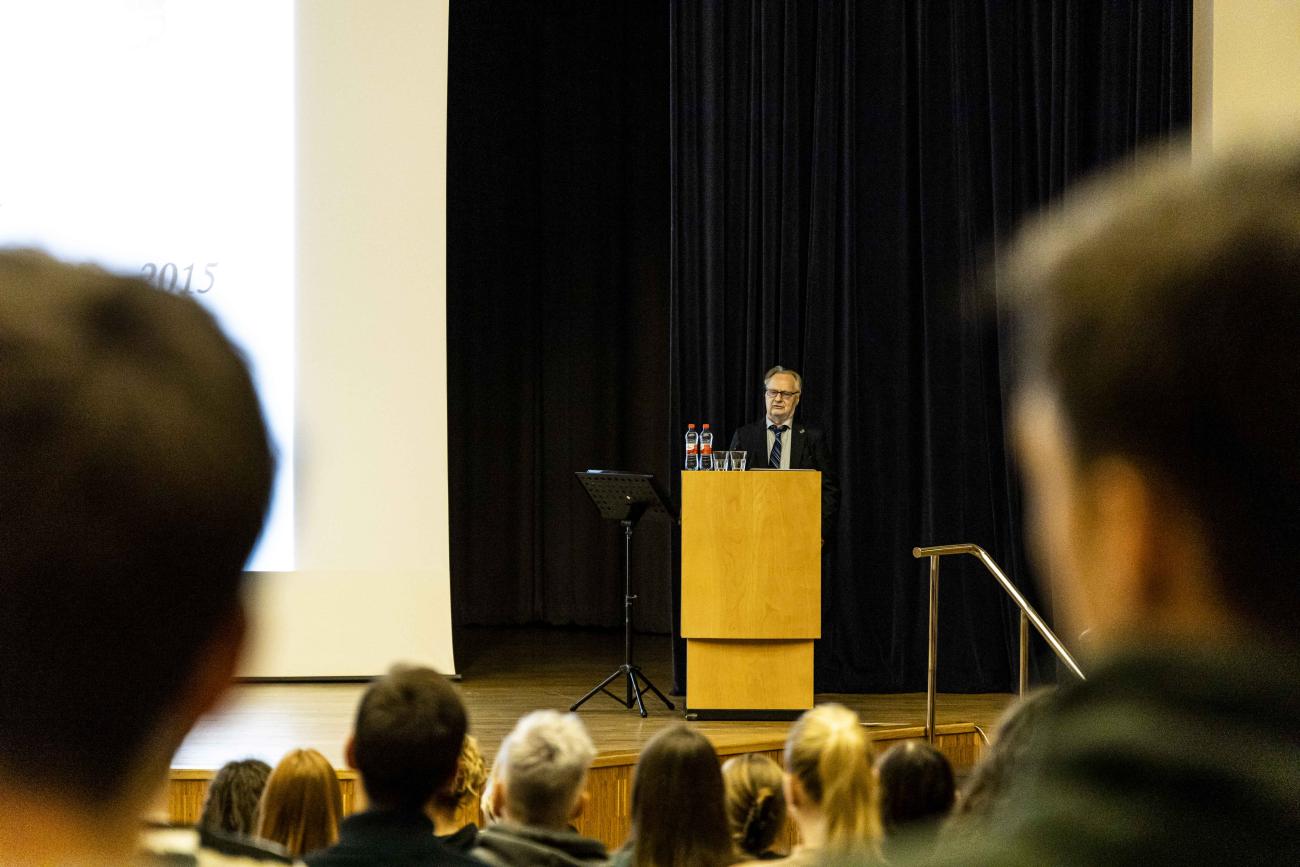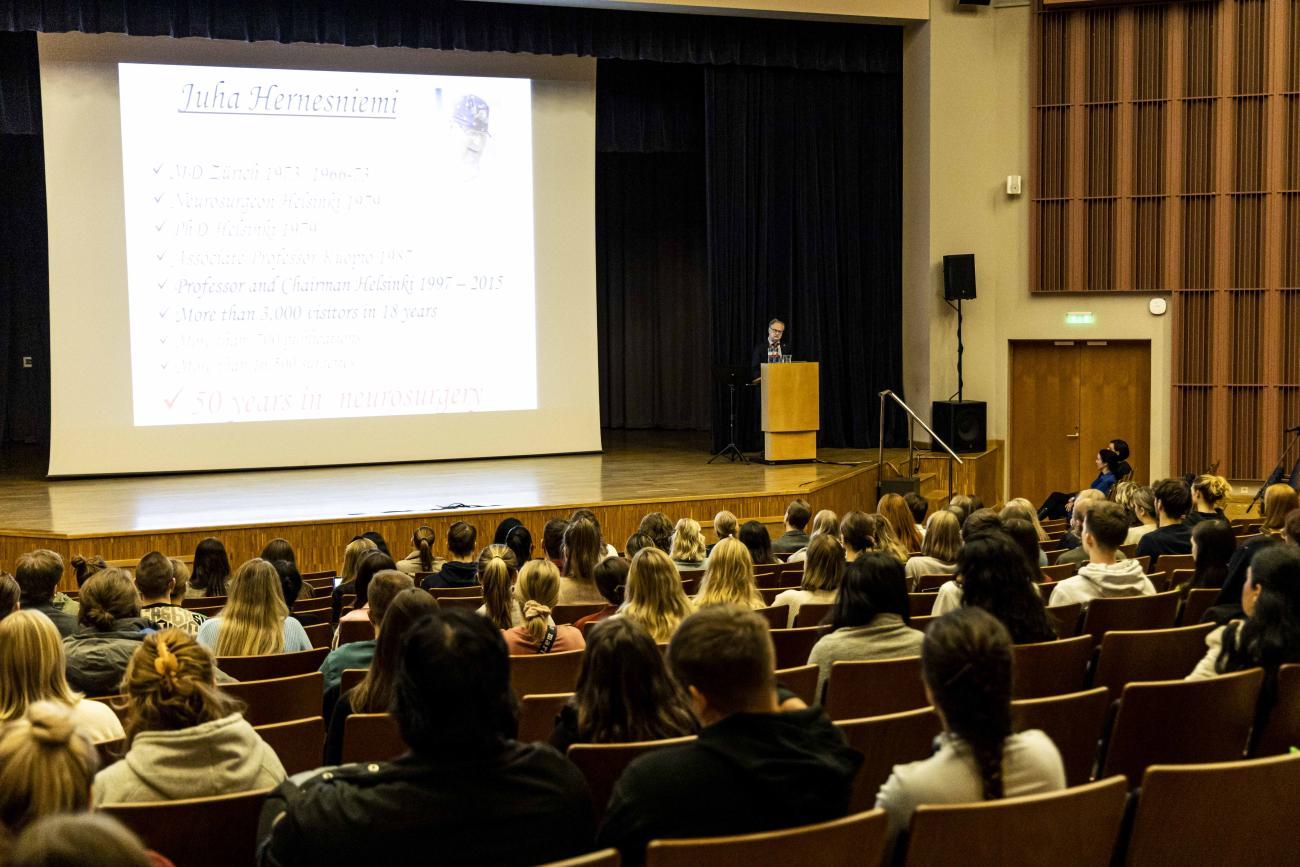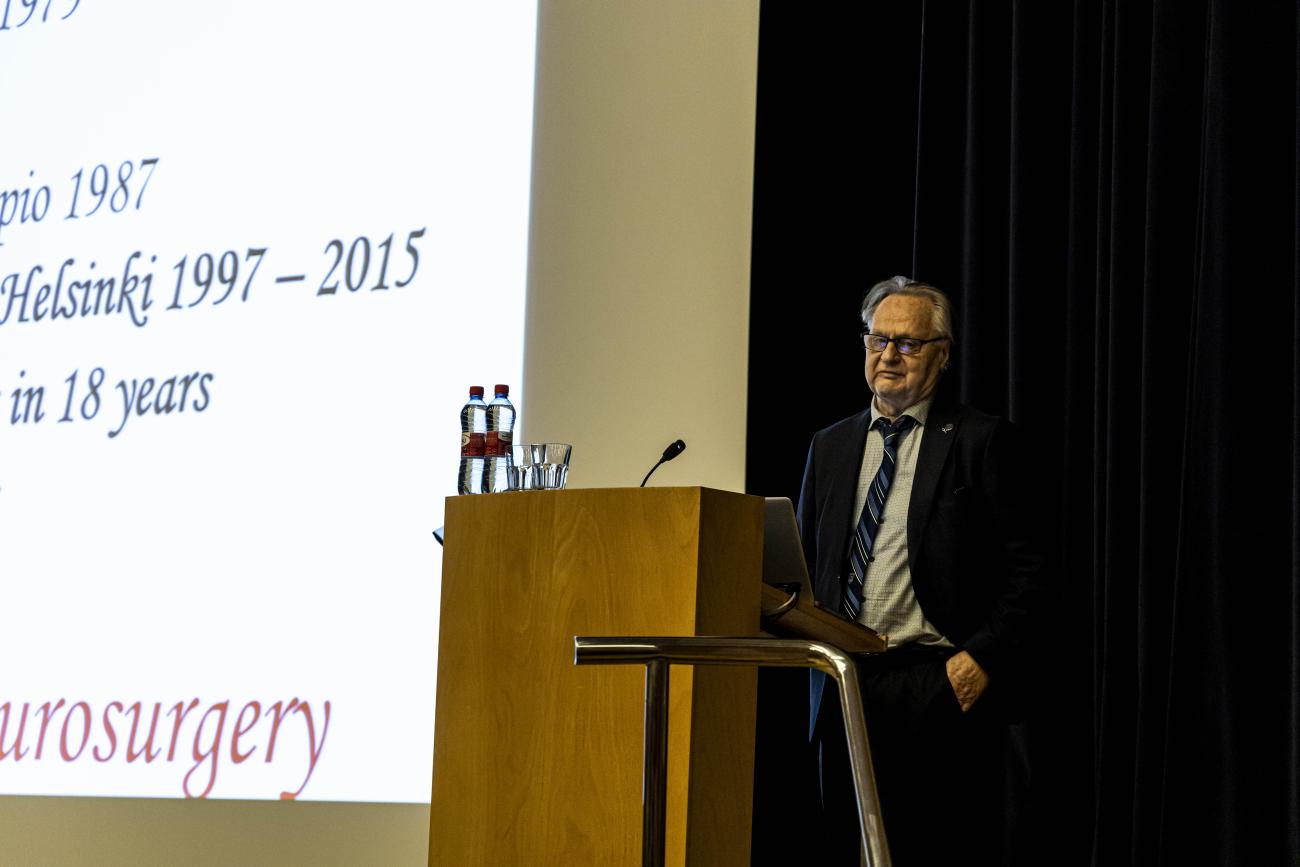Interview with Dr Juha Hernesniemi: The Higher You Set Your Goals, the Closer You'll Get
Dr. Juha Hernesniemi is a celebrated Finnish neurosurgeon. His book Aivokirurgin muistelmat (Memoirs of a Brain Surgeon) was just published in Finland. He visited Rīga Stradiņš University (RSU) on Friday 9 December to speak to an audience of over 200 students about his life and experience. He was introduced by RSU Alumni Johanna Nisula who graduated in 2021.
Here, both of them reflect on their careers - one looking forward, and one looking back.
Dr. Juha Hernesniemi
How did you come to be here at RSU?
Kaspars Auslands is very famous around the world and a very skilled neurosurgeon. I wanted to see his clinics, and I connected with him there. He suggested that I come here to give a lecture.
What will you be talking about today?
I will tell my story, 50 years in neurosurgery. I cannot change my story so I have to repeat it around the world.
What do you think a student can learn from listening to you?
It's a lesson in how you manage your life, your profession, and how life actually turns out. When you are young and studying, you think that you have all the time in the world, but life is short and suddenly 50 years have passed. I am now looking back at my life philosophically.
Do you have any ideas about where the field of neurosurgery might be going in the future?
I've seen so many changes happen over the last 50 years. It's difficult to say exactly what will happen in the next 25 years, but it's always getting better.
Do you mean technology or skills?
Both. Maybe more the technology. The skills are already good, so they cannot improve much more.
What can universities do to prepare students for the future?
I think universities should motivate people to work hard. Hard work is necessary whatever you are doing. This is what I think is most important. No one is too talented or too big a genius that they can manage without hard work.
What advice would you give a student who's just starting out?
Select a field because that you are interested in it rather than for any other reason. If you select a field because of money, you will not do as well.
If you're going to be spending a lot of time working on a PhD or doing research you have to be interested in the subject.
What drew you to neurosurgery?
I was studying medical science in Zurich, so I had the best neurosurgeons in the world there. They were my heroes and very inspiring. That's why I selected neurosurgery.
You have to have heroes. If you want to box, look to Mohammed Ali, or if you're a runner look to Usain Bolt. There is an eagle called el condor pasa in South America. It flies the highest in the world. You have to put your goals as high as the el condor pasa. You might not reach that level, but at least you'll come close. This is very important. The higher you set your goals, the closer you'll get to them.
- About Memoirs of a Brain Surgeon
During his career, Juha Hernesniemi elevated Helsinki University Hospital to an international hub for brain surgery. Exceptional ambition and a constant desire to improve took the boy from a small village in Ostrobothnia to the top of the world. In his biography, Hernesniemi talks openly about his hard years of medical studies and work in Finland and around the world, from Florida to Nepal and China. He opens up about the highs and lows of his career, the relentless competition and the amazing and even tragic patient cases he will never forget.
Johanna Nisula
When did you study at RSU?
I graduated last year, in June 2021. Time has passed so fast! Since graduation, I have been working a lot in Finland. I have good memories of RSU.
What did you take away from studying at RSU?
RSU gives you really good knowledge about things, but you have to read a lot. When you combine that with practical skills later, you become a really strong doctor. I keep hearing in Finland that the level of knowledge is high because at RSU we are pushed to study a lot, to learn a lot. While you're still studying it can feel like it's engulfing you, but later, when your sixth year has passed, it all makes sense.
I have noticed that studying at RSU made me really good at making a diagnosis quickly.
It might not make sense during your years here, but later when you meet a patient it all falls into place. It becomes like this sort of reflex, that you're able to understand what's going on really fast.
Where are you working now?
Just now I'm in vascular surgery in Meilahti Tower Hospital, which is the biggest hospital in Finland. I started working pretty much right after graduating.
What was it like graduating during the pandemic?
Because so many classes were held online, I was able to combine my work and studies already then, which made for a smoother transition into my work life.
Related news
 Time capsule laid at ceremony for construction of new RSU sports complexFor Students, Consolidation, For RSU Employees, Internal consolidation, Development
Time capsule laid at ceremony for construction of new RSU sports complexFor Students, Consolidation, For RSU Employees, Internal consolidation, Development
